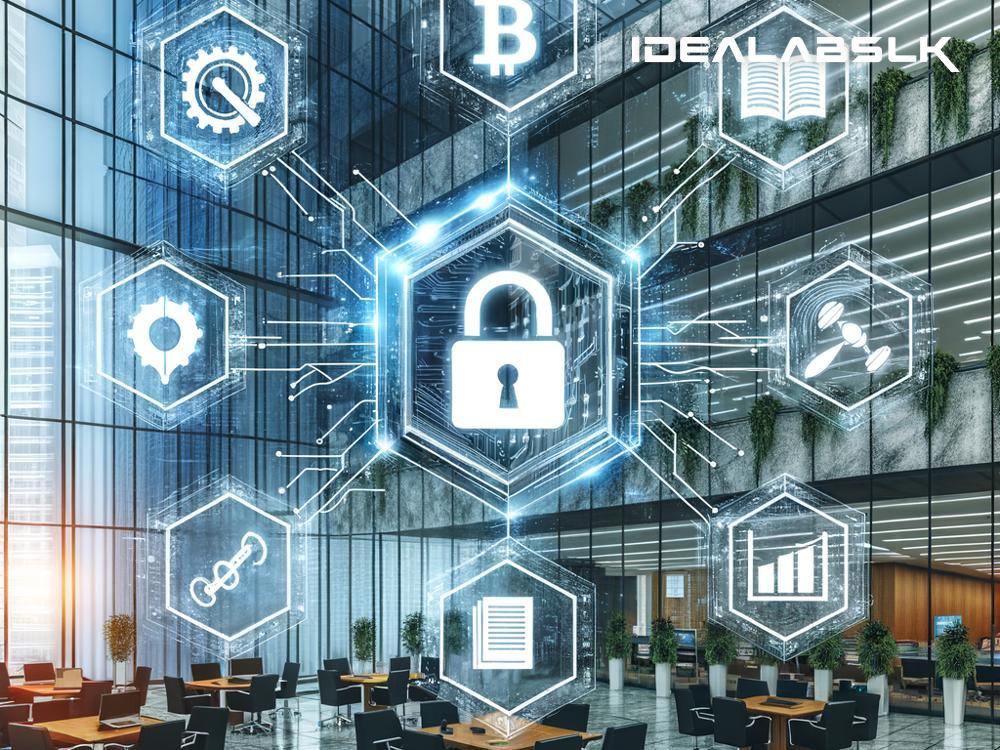Blockchain-Based Solutions for Real Estate Compliance: A Game-Changer in the Property World
The real estate industry, with its vast network of operations involving countless transactions, contracts, and records, is often seen as a complex labyrinth for many to navigate. Compliance, or adhering to laws and regulations, sits right at the heart of this complexity. It's all about ensuring that every transaction, every record, and every deal is legal, transparent, and fair. However, maintaining compliance can be quite a challenge with the traditional systems in place. But what if I told you that there's a groundbreaking technology set to transform the way we handle real estate compliance? Yes, I'm talking about Blockchain.
Before diving into the wonders of blockchain for real estate compliance, let's simplify what blockchain is. Imagine it as a digital ledger that's completely tamper-proof. It records transactions across multiple computers in such a way that the record cannot be altered retroactively, without altering all subsequent blocks. This characteristic makes it an excellent tool for ensuring integrity and transparency in operations - something real estate desperately needs.
Revolutionizing Real Estate Compliance with Blockchain
Increased Transparency
Blockchain brings unparalleled transparency to real estate transactions. Every transaction recorded on a blockchain ledger is visible to all parties involved and cannot be changed once confirmed. This makes any form of alteration or fraud nearly impossible, ensuring that all transactions comply with legal standards. It simplifies due diligence and makes it easier to comply with regulatory requirements.
Enhanced Security
One of the biggest concerns in real estate is the security of sensitive information and transactions. Blockchain's cryptographic security measures mean that data on the blockchain is highly resistant to hacking and fraud. This secure environment is crucial for confidential contracts and records, ensuring they remain untouched and accessible only by authorized parties.
Streamlining Paperwork
Real estate is notorious for its mountain of paperwork, involving permits, contracts, deeds, and much more. Blockchain can digitize these documents and store them securely on the blockchain, making them easy to track and verify. This significantly reduces the administrative burden and potential for errors, making compliance processes smoother and more efficient.
Automating Compliance through Smart Contracts
Perhaps one of the most revolutionary aspects of blockchain in real estate is the concept of smart contracts. These are self-executing contracts with the agreement directly written into lines of code. They automatically enforce and execute the terms of a contract when certain conditions are met. For example, a smart contract could automatically release funds for a property purchase once all legal requirements are satisfied, ensuring compliance with regulatory standards without manual intervention.
Simplifying Property Management
Blockchain can also streamline the management of properties, especially in verifying compliance with local regulations, maintenance records, and property taxes. By having a transparent, immutable record of every aspect of property management, property owners can easily prove compliance, and regulators can efficiently verify it without the need for extensive audits.
Real-Life Applications and Future Prospects
While the idea of integrating blockchain into real estate compliance might seem futuristic, there are already practical applications in motion. For instance, several countries are experimenting with blockchain for land registry purposes. These projects aim to reduce fraud, speed up transactions, and provide a clear, immutable history of property ownership and transfers, enhancing overall compliance in the property sector.
As we look towards the future, the potential of blockchain in transforming real estate compliance is immense. From buying and selling properties to managing and maintaining them, blockchain can offer a level of security, efficiency, and transparency that traditional systems simply cannot match. While challenges such as technological adoption, regulation, and standardization still lie ahead, the path forward seems clear.
A Bright Future Ahead
In conclusion, blockchain technology holds the key to solving many of the compliance issues plaguing the real estate industry today. Its ability to ensure transparency, enhance security, automate and streamline processes, and even manage properties more effectively, positions blockchain as a game-changer in the real estate world. As we move forward, embracing blockchain could mean making real estate transactions safer, faster, and far more compliant than ever before. The future indeed looks bright, and it's built on the foundation of blockchain technology.

